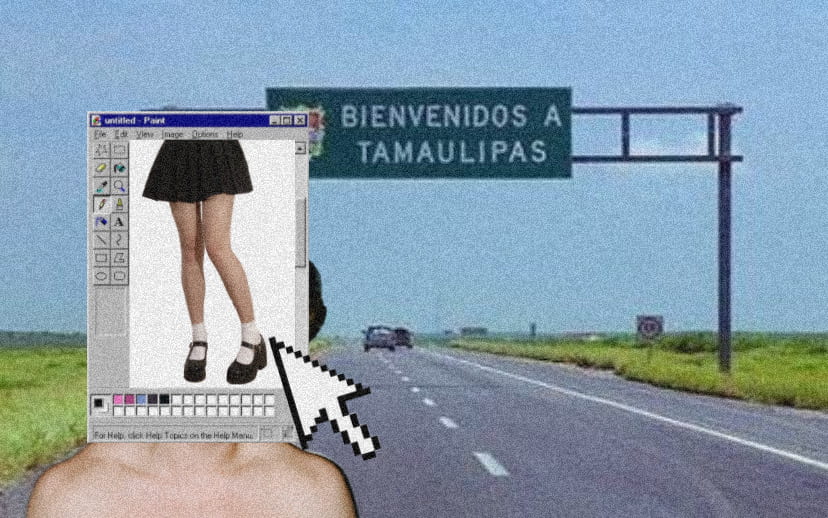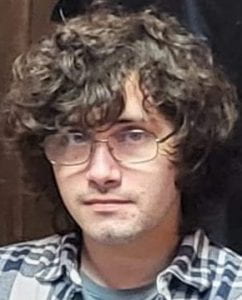
Background Image Credits: Google
I was passing the time with an old friend of mine some time ago. We were drinking
coffee, sitting lazily on her bed. I don’t remember what inane things led to this topic of
conversation, but we started talking about physicality and our bodies, what we liked about them
and what we didn’t. This was around the time I had begun questioning my gender identity,
something I was open about only with her. I mentioned how one of the things I was the most
bothered and insecure about was the width of my shoulders.
I didn’t like how broad they were. In my eyes, they were way too imposing, way too long
from one end to the next. There was a constricting feeling in seeing how much wider my
shoulders were than my waist. In the mirror, despite being scrawny and unfit, it made me look
like a football player, or some sort of nacho chip. What made things more frustrating was that there
was no real way to change how they looked. I could avoid wearing things that accentuated them,
like plaid patterns or white shirts. But beyond that, all I could do was constantly keep a hunched
up posture, bringing my arms forward and inward, trying and failing to reduce the space I took
up. Being physically more meant being more mentally contracted, shrunken in, like a big dog in
a small cage.
So I told her this. I mentioned it casually and offhand, more in the manner of testing the
waters, just wanting to hear it said out loud. She paused for a second. Then, as she took the last
swig of her coffee, she looked at me with furrowed eyes, put the cup down, and said, “They’re
not that broad.” She said this, I suspect, in a genuine attempt to make me feel better, to ease
the discomfort she must have thought I felt. An assurance that I could relax, I had nothing to
fear, for she, who cared for me, would not see me the way I feared others would.
It didn’t register that way. At her words I felt a strange sting in my chest. A weird,
visceral barrage from within. It made me feel worse, but it stung in a different way than the
regular constricting sensation. Like an open wound instead of a bruise. I couldn’t quite put my
finger on why (was that not what I wanted to hear?).
I am the first male born of a Mexican father, the first male born of his Mexican father.
The primogénito varón, which meant that unto me fell the special responsibility of carrying the
family name forward. I knew that, understood it in some abstract sense since I was young.
Machismo is a hell of a standard to set for a child. I had it bored down into me whenever it was
time to get my shots, and I would bawl like a baby all the way home, then simmer it out alone in
the dark of my room because, as was understood, los hombres no lloran, and if real men don’t
cry, what kind of man of the house would I be?
I was fairly gross-looking in high school. Pale, bloated with a sunk-in face and bad hair.
Simultaneously taking too much space and constantly preoccupied with shrinking. But worse
than all of that, I was effeminate. My hands were soft, my arms scrawny and hairless.
And sure, I was riddled with the maladjustments of a typical weird kid, but I was never
unfriendly. I could approach any one classmate and expect, reasonably, to be liked, to be
pleasant company. But that did not mean I could expect anyone to soften their blows. Kids tend
to have no reservations on their judgements, no reason to hold back on telling you that they think
you are disgusting. I could laugh with them, be tolerated, even be considered a friend, and in
the same breath with that same tone, be reminded outright that my presence was gag-inducing.
The logical response was to laugh and nod, because, yes, my god, they’re so right.
When masculinity is rejected, it is also mocked as a means to that end. At some
point, the jokes my friend and I shared between each other took on a (frankly obnoxious)
misandrist curve. Directed at her exes, trending celebrities, or just any random men we saw
walking down the street. The substance of the ridicule never really mattered. It was vapid and at
times self-contradictory. What even were our grievances, in the end? Their overbearing
bravado? Jokes about penis sizes? What mattered was the object of the ridicule, and that it was
shared between the two of us, that our two-person man-hating group was inclusive of me,
specifically. I could participate and say all these darned things and, through it, distance myself
from the abstract of masculinity. To “other” being a man. It was supposed to be a privilege.
Some months before our caffeinated bedside exchange, my friend had encouraged me to
try on some of her clothes. Under the dim fairy light of a lovely summer night, I wore a loose
long sleeve dealio, a pair of tights, and a black skirt over them that reached down halfway to my
knees. Guided by her hand held over my head, I twirled before the mirror and made the skirt
dance.
In truth, I don’t remember how it felt then. I remember not even sparing a thought as to how
surely ridiculous I must have looked were anyone watching. It emphatically didn’t matter. The
mood was a sort of lightness that has, since then, been scrubbed from my memory. I don’t know
why that is.
Some time later, she jokingly called me a “soyboy.” I nearly broke down on the spot. I
didn’t wear women’s clothes after that.
Which is weird, I know. It’s incongruent with the aforementioned rejection.
Because I don’t want to be a boy. I don’t want to be a man at all. For my own sake and
self-actualization, I want to be androgynous as all hell, and learn how to be fun in that mode of
living. Man-ness is something I want expunged out of me with great violence, squeezed right out
of my system like juice from a lemon. So why on Earth does it hurt when someone says I don’t
have wide shoulders?
Androgyneity is a feckless and arbitrary dream. Rejecting masculinity doesn’t get you
closer to it. All you can do is suppress the longing. If the standards impressed on you are too
much to bear, if the knowledge that you need to be “better” or else you will never be right, never
be desirable, is too much for you, then all you can do is shut down. In the sense that, I am not the
best man, but I am at the very least a man, and that should be, on some level, enough.
But it’s only now that I’m beginning to think that the open wound below the bruise is a
padlock, permanently pierced into my skin. It can’t be opened. It hinges on the reality that even
moving past any desire that I may have to let go of manliness, even if I gave up on that dream, I
am still not as masculine as I should be, as I’m expected to be. It can be so easy to ignore this
padlock on the day-to-day. A padlock is too small to constrict my movement. But when
somebody in any way slights my masculinity, when it gets tugged, it pinches all the right nerves
and hurts in an entirely new, and far too familiar way.
She and I don’t really talk anymore. Which is probably for the best. She must have
seen that I am so utterly lost on an overbearing amount of fronts. I think I need to figure some
things out, still.

Hector Cervantes is a Rice alumnus who graduated in 2022, majoring in English with a Concentration in Creative Writing. Their creative interests within the writing world lie in the horror genre and climate science literature. In addition to this publication, Hector has work forthcoming in Rice’s own literary magazine, R2: The Rice Review. In their free time, Hector enjoys working on their novel, reading poetry and petting cats.